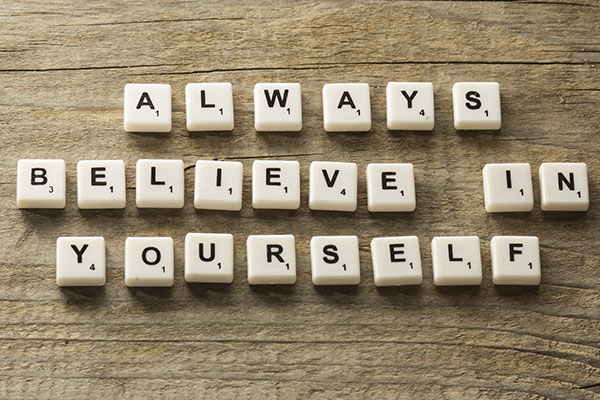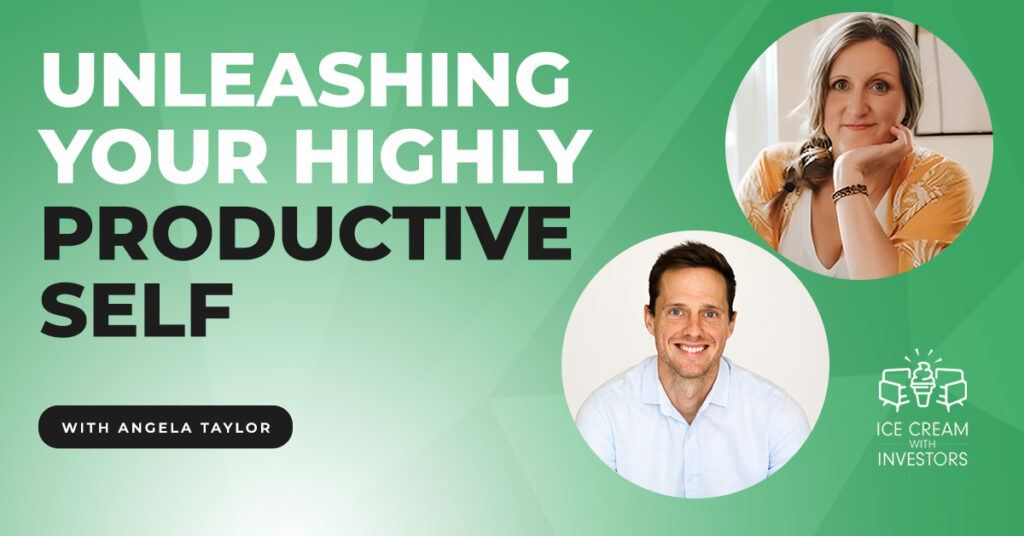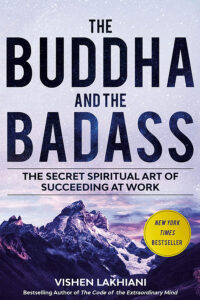Productivity starts with being clear about your purpose and taking action. But if you do not know how to handle your emotions or surrender to the present, your productive self can never be unleashed. Angela Taylor joins Matt Fore to share her four elements of productivity that serve as guidelines on the path towards success, just like turning on your internal GPS. She explains how meditation visioning can help set goals and create boundaries instead of building unnecessary obstacles that hinder growth. Angela also talks about applying these concepts to her own life. She reflects on how she started her real estate career, established a virtual business, studied counseling, and survived single motherhood.
—
Watch the episode here
Listen to the podcast here
Unleashing Your Highly Productive Self With Angela Taylor
In this episode, we have Angela Kristen Taylor. Angela has a strong background in the real estate world. She is an active agent in Florida and has been coaching real estate agents for many years. She has built a solid real estate virtual assistant company and eventually sold it. She is now a Productivity Coach for entrepreneurs and salespeople with a strong message about productivity being rooted in emotion. She has some amazing insights to share with us about how chaos becomes the new normal setting for people to revert to and have this ultimately affects our ability to be productive in the business. —Angela, welcome to the show.
Thank you. I appreciate it.
We like to start off with the difficult questions here. What’s your favorite ice cream?
I’m allergic to dairy, so I’m sure that’s not your favorite answer. I’m not a big ice cream partaker. I will tell you that I do love chocolate chip cookies. It is my one weakness. I do make them dairy-free and gluten-free. They’re my favorite and super healthy.
Tell our readers, what’s the scoop? What do you do now?
I’m an Integrative Productivity Coach. I work with self-employed entrepreneurial people, a lot of people in real estate since that’s the world that I come from. I work them through all the reasons why they’re not doing the things they say they should be doing to be successful. We come out of that on the other end with them doing the things, feeling great about it, and being really successful.
I can’t wait to dig in there. Before we get there, tell our readers when your real estate journey begins.
This was a long time ago. This was back in the days of assumed no-qualify loans. You could be like, “How did you buy a house? You’re nineteen. You had no credit.” I’m like, “I didn’t have to.” It was so cool like that. You take cash, match the equity, and they give you the house. It’s super easy. I bought the first house when I was nineteen. I was like, “That’s super awesome.”
What it was was I watched this Carleton Sheets infomercial in the middle of the night, and I was like, “I could do that.” I called a real estate agent, and I’m like, “This is the deal. I’m going to get an equity line of credit from the house I bought ANQ, and then I’m going to pull that money out and use it again and buy another house. Here’s how much I’m going to have. You find me a house that has that equity value or less, and I’m going to buy it. I don’t care what shape it’s in.” I had to call 10 different realtors, and only 1 took me up on it.
Why is that?
I didn’t know them. It falls into that, “I know what I should be doing, but I’m not doing it,” realm for agents and a lot of them don’t respond to leads. It’s interesting, but it’s a thing.
You bought one house, used the equity, and bought another house. How big did you scale?
Between 19 and 22, I bought 4 homes. I was renting out three of them and managing those by myself, with no experience doing this before. It was so cool. It was the best thing in the world. There was this thing, and I’ll go into this a little bit more with the whole emotion aspect of productivity. There is this story that I had as a kid. It’s the story we keep internally in our subconscious. It was telling me I have to do things the way everybody says I’m supposed to. What I was supposed to be doing was enrolling in college. I thought, “I don’t feel like that. That’s not what I feel doing now.”
I thought, “I’ll go do something else for a little while, and then when college feels a fit, maybe I’ll do it then.” In my mind, it was something I was still going to do. When I got bitten by the real estate bug and started investing, I was thrilled by it. What I realized was that I could make up my own story, and I didn’t have to do things other people said. I could create anything I wanted as long as I could believe in myself that if I could make it happen, I could. That’s when I started veering off of the supposed-to story and started going into creating my own.

Productive Self: You don’t have to do things that other people tell you. You can create anything you want as long as you believe in yourself to make it happen.
How did you find that out? Because that’s something that a lot of people are struggling with, especially myself. How did you come to that realization?
It was the fact that I bought a house at nineteen that I thought nobody was doing that. I didn’t know anybody else. Nobody I went to high school with certainly was buying a house. To be 22 and own 4 homes and have 3 rental properties, I thought, “A lot of grownups don’t have what I have. This is pretty awesome. What else can I do?” That’s when I got my real estate license and started selling real estate. I loved it, but I liked being that person that the other realtors came to. That was what shifted me again. It was seeing what was possible and being willing to break the rules.
You scaled it to four, managed it yourself, and decided to become a realtor. You said something there about being the person that realtors come to. Why is that? Why were they coming to you?
It was a combination of things. That was when Windows-based MLS came out. It was the first time we had a Windows-based MLS. Before that, it was all in DOS. There were no pictures. It was all coded. You had to memorize all the codes. It was crazy. It was Windows, which meant people had to know how to use a computer, and a lot of people didn’t know how. The board had us all go in and take a class on how to use the system. I was like, “I got it. No problem.” I went back to the office, and the broker was like, “We all took the class, but you’re the only one who understood it. Can you teach it again here?”
I was like, “Why not?” There were other things that were happening. There were agents who were saying, “I’ve got this listing, and it’s not moving.” I would overhear them talking to another experienced agent about this. I would say, “Why don’t you do such and such?” It was something creative and off the wall. They were like, “We can do that?” I’m like, “I don’t see it’s wrong.” They were like, “That’s a great idea.” They then would run with it, and they would do it, and then they would sell the house. It was things like offering a bonus that wasn’t a bonus to an agent. There are certain rules around things that we can and can’t do in different states, and this was okay then.
It’s things like having six months of housekeeping service to the buyer, and they would sell the house. This was Orlando, Florida, where all the homes were pretty much cookie-cutter. If there could be five homes on a block, and they all are identical, how do you sell yours? It was getting creative with the marketing and the offers. They liked that, so I started putting stuff together like that for the agents, and they enjoyed it. I was like, “I like this creative part.” I then started going to conferences like the Florida Association of Realtors and the National Association of Realtors, which is in Orlando every four years.
I would go to those things, talk to all the vendors, and get to know them. The reason I did that was because I didn’t want to pay the money for the classes. I didn’t want to sit through the classes either. I couldn’t sit still that long. I thought, “I’ll walk around and talk to the vendors on a free day.” I did, and I loved it. I got to know all these people from all over the world. Before I knew it, people were calling me and asking me questions like, “What do you think of this? What do you think of that?” This is how I got started doing my marketing business, which turned into a virtual assistant business because I loved helping realtors.
I got pregnant with my first baby. I was like, “What can I do where I don’t have to go to an office and climb upstairs?” I was eight months pregnant, showing a house, going, “No, I don’t want to do this anymore,” so I started this marketing business. I got the phone book, called every real estate office, and said, “Is there anybody who needs any help with their marketing, their listings, or anything like that?” They then patched me through to an agent. I had a couple of clients right off the bat that was local. I thought, “I’m not going to their office. I’m doing everything over the phone, and I’m doing it on my computer from home. I’m emailing them things. I could do this for anybody anywhere.”
I went to the Number One Experts website. It was a place where they would build real estate websites for agents, the kind with the big Palladian window with your face that says, “Enter Here.” They would have the directory of all the agents that had Number One Experts websites. I clicked on every single one and this was before we had spam logs. There were a lot of things we could do back then that we can’t do now. I emailed every single agent that had a website with them. This is back when we didn’t have IDX, so all the listings had to be manually entered. You were only allowed to post your own listings on the website.
I emailed them all, and within 2 weeks, I had 10 clients that were all over the country. These were the top agents in their local area because they were the ones who had websites and most people didn’t back then. I emailed them all, got 10 clients, and then kept emailing until I reached 40 clients. Some of those clients were brokerages. I ended up having to hire ten other people to do all the work.
We were writing listing copy, posting listings to websites, updating stuff, calling leads for them that they would have come in off their website, and that of thing. It went well until I was sitting on the phone doing what I called customer service, which was helping my agents through all their problems. Somebody was like, “This is so great. This is better than my coach.” I’m like, “Coach? What’s that?” They’re like, “It’s what we did here.” I’m like, “You pay somebody for that?” They’re like, “Yes.” I’m like, “Thank you very much.” I then started researching, and that was many years ago. I’ve been coaching ever since.
I want to get back to you emailing people. How did you assess whether you were effective or not? Did you say, “I’m going to email twenty people at a time and redefine my script?” Were you emailing them every other day? How did you refine that process as you grew?
To be honest, I didn’t think too hard about it. I wrote up one email and sent it to as many people as I could stand to do in one day. I kept doing it until I got through all of them. It took me two weeks, and ten people responded yes.
That’s what’s interesting about virtual sales, specifically as we are in this interconnected Zoom world. It’s a numbers game. Maybe you talk about this in your coaching. As long as you’re not going to get your feelings hurt by a no, you can keep going to the next person, and that’s going to get you closer to a yes.
It was even when I was in real estate sales. They didn’t have training programs, a lot of coaching, and things like that back then. When I first got my real estate license, I went to my broker and said, “If I get a buyer that wants to buy a house, what do I do?” He did not look up from his desk. He pointed across the room to his file cabinet and said, “Take one out of there and copy it.” I was like, “Okay.” I sat there all afternoon going through contracts, studying them, and learning them. When it came down to it, I figured it out. That’s what we did. That’s what training was apparently back then.
I didn’t mind calling people. I would call people that were for sale by owners, expired listings, and things like that. I got a lot of people that would get angry and hang up. I thought, “I got to have fun with this. I don’t have anything to lose.” They’d hang up on me, and I’d call them back. I’m like, “I’m so sorry. You must have gotten disconnected.” They’re like, “No. I hung up on you.”
I’m like, “Are you having a bad day? What’s wrong? I’m so sorry.” They’re like, “These stupid realtors keep calling me, and you’re another realtor.” I’m like, “Let’s talk about this a little bit.” They’d open up and pour their hearts out to me. It was funny because I remember I would take a very non-aggressive approach to it. I was like, “I’m here to help you. If I can answer some questions for you, if I can help you out, maybe I can give you some advice, I’m happy to do it.”
I would do that over the phone and call them back. I say, “Do you want me to stop by? How’s your open house going? Let me stop by. I’ll take a look. I’ll see if I can think of anything that might help you get it sold faster,” and then it was, “Let me drop off some paperwork for you. Here are some plain contracts. If you need any help or you have any questions, let me know. If you get a buyer, here you go. This is how you do it.” They were like, “This is so helpful.” When they needed to list it, because they were so tired of it and it was going nowhere, they called me. It was being nice, and that was it.
Most successful salespeople are servant leaders. They’re trying to solve problems. We talked to a couple of wholesalers on the show before. One of the things that I always try to say about wholesaling is all you’re trying to do is find people with problems and help them solve their problems. That’s all. One of the things through my research of you I’ve learned is your Four Emotional Elements or your Four Elements of Productivity. Can you talk us through that?
I will tell you that this came from a space of going to conferences, sitting at the bar, waiting for an agent to sit next to me, and then turning around and saying, “I bet when you were a kid, you scored off the charts on all your standardized tests, but you didn’t do your homework or much of your schoolwork. Your teacher said, ‘Why don’t you apply it yourself?’” They would sit there, and their jaw would drop and say, “How do you know that about me?” I’d say, “You’re just like me. I did the same thing.” Almost all of the agents I’ve ever met are exactly the same way. They’re like, “You’re kidding.” This was this big secret that nobody knew, and we were all like that.
I started digging deeper into that. I realized that there is this thing that happened in our childhood. I used to think it was that we were all abused in some way, and it wasn’t necessarily that. We could have well-intentioned parents that didn’t know what to do with the way our brains work. We have these entrepreneurial minds, and we’ve always had them. We’re people who think and behave a little differently, like to break the rules, and are willing to do it.
I find that a lot of us have had similar upbringings. What it’s done is it creates this desire to go out and be free not to have anybody saying, “You have to behave this way. You have to do things this way. You have to get this job and earn this amount of money to be happy.” We’re like, “No. All I need to be happy is to be free.” Because of that, what’s happened is we go into this space of being self-employed and an entrepreneur.
A lot of us go to real estate because it’s a great way to make money. It doesn’t matter if you’re an agent, investor, or whatever. We’re in real estate. That’s what we do. What happens then is that this need to be free comes from this childhood story of what we grew up with and were told. It also stems from this space of wanting to lead with a servant’s heart. We truly want to solve problems and help people.
At the same time, there’s this thing inside of us that says, “If we offer it, maybe they don’t want it. Maybe I’m not good enough to give it to them. I don’t know if I can help them. I want to help them. I think I can help them. Am I good enough to help them?” We then run through this emotional roller coaster. This is what happens. We have all this chaos that’s rolling around inside us all the time, and we have this desire to do this big thing. We’re doing it, but then we stop ourselves from doing it. We do it again, stop ourselves again, and so on.
My Four Elements are Emotion, Energy, Time, and Focus. What I realized was that all of our productivity, our ability to be motivated, stay motivated to get up, and do things every day is rooted in how we feel at any given moment. What we choose to do on the outside is going to be based on how we feel on the inside. If we’re all chaos on the inside, we don’t make the right choices with our time. That’s why I always say productivity is rooted in emotion. We start with focus, and we work our way backward.
As you were telling the story, I was thinking in my head that all kids want to be free, and it’s our job as parents to put boundaries on where they can be free. I caught myself thinking that, and then I thought, “That’s like me. I want my time freedom back. I need guidelines and boundaries to go be successful as an entrepreneur, an investor, or whatever.” How do you help people create those boundaries internally?
It’s not so much helping people create boundaries, so much as figuring out what boundaries they need and want. We do something that I always start with called Setting Your GPS. When we get in the car, the first thing we do is plug in the phone and do our GPS. We set it whatever our destination is. It doesn’t matter if you’re going to the grocery store down the street and know how to go there.
You want to make sure there are no cops and no traffic accidents. You want to make sure you’ve got the fastest, most direct route there. The thing is, we do that in our cars to get anywhere, even if we know where we’re going, but we don’t do it in our lives. We don’t sit down and figure out, “What is the end destination that I want to get to?”
Where do I feel like, “This is good. It would be good if I could be right here. This is where I want to be.” We think we know what that is, but we don’t process the whole thing. Because we don’t, it’s like getting in the car, and instead of going to the grocery store, you’re playing bumper cars. You are in a circle. You have no idea where you’re going, what you’re doing, or who you’re not going into. You have no clue. As an entrepreneurial person, we tend to be people with lots of big ideas.
We’re visionaries, and we like to go out and do big things. If they’re not serving the destination that we want to get to, it’s not the right thing for us to do. We can get lots of great ideas, but it doesn’t mean that all of them are going to be the ones that serve us that are putting us into a space of like, “Yes. This is what I want.” Sometimes, things sound good, but they take us to a place we don’t want to be.
I’m going to steal one of your best practices from when you were going around in conferences and talking with people because you didn’t want to take the class and ask you. This is one of the things I struggle with, but I also understand the value tremendously. One of the things I talk about is clarity. You have to know where you’re going, or any road will get you there. More specifically, if you start going down a path and make a decision, it limits your options in the future on the decisions that you can make. This idea of setting an internal GPS is appealing to me. How would I go through setting my internal GPS? What exercises and questions could I be asking myself to help get clarity on that?
I got certified as a meditation trainer. I take people through a meditation visioning where we go into a future time period and look at what life looks like in this future time period. It is designed to where I’m setting it up for them so that it’s your ideal day and take them through walking through a day in that life. What is that ideal day? What happens is stuff comes out in that without them thinking about it and planning.
It just pops up, and they’re like, “I had no idea I would be doing that. That’s interesting.” Me doing that on myself was how I got myself into a three-day work week because I was like, “On my ideal day, I was only working from 9:00 to 2:00 and only on Tuesday through Thursday.” I then thought, “Why am I not doing that now?” I did it. I rearranged my schedule and made it happen.
That’s where I was going next. When you get people to understand what their ideal day is, it might be years in advance. How do they bring that and make an actionable thing now to help them start getting towards that path?
It’s looking at it and saying, “What parts of this can I implement now?” and doing those first. Whatever is left, break it down into, “How do I get there?” Create a path for yourself and start creating those stepping stones because it’s easier to backtrack something than forward-track something. That’s why everybody’s like, “I’m going to do this, and then I’m going to do that.” Do you know where you’re going? Because they don’t. If you start at the end and then work yourself backward, it’s easier to build it and figure out what direction you need to go.
If you start at the end and work yourself backward, it is easier to build your future and figure out which direction you need to go.CLICK TO TWEET
I’ve never heard it said that way, but that makes so much sense when you’re saying that because I think about the things that I’m trying to accomplish in my life. I’m an Ironman athlete. You’re in Louisville now, which is a very long-distance triathlon. I always think, “There’s this race that’s nine months out. What do I need to do before that race? This week, I need to be here. The month before, I need to be there. The three months, etc.” You work with a lot of clients. What are some of the pitfalls you see after this session that they revert themselves back to chaos and don’t make the momentum? What stops them from gaining that traction to help them be successful?
A lot of it is their emotions and their energy. Emotions are all the stories inside of us. It’s not just, “I feel this today.” It’s so much deeper than that. It is, “I’m not calling these leads or these people. I have this whole database full of people. I’m not calling them.” It’s like, “Why aren’t you calling them?” “Because I have so many other things on my plate. I don’t have time.” It’s like, “That’s a bigger problem. The bigger problem is you’re choosing what to put on your plate each day. What you’re choosing are things that are pulling you away from the one thing you don’t want to do, which is talking to people. If you don’t want to talk to people, but you want to build your business, then how are you going to do it?” It’s backtracking. It’s going from the problem and saying, “Let’s keep working our way back until we get to a root. When we get to a root, we can pull it up and out.”
Be sure to understand what you are putting on your plate each day versus the things you are pulling away from.CLICK TO TWEET
This goes back to what I was saying before about realtors at the bar at the conferences. The root is usually that there’s some internal childhood story around it, and I’ve heard everything. I’ve heard a lot of perfectionism from parents, “If you don’t bring me home an A, it’s not good enough,” then there’s this fear, “If I don’t bring this person my A, then they won’t want anything to do with me. This guy over here, that top agent leading this big team, he’s the A. I’m not the A. I shouldn’t even bother.” That’s what’s going on in the subconscious. They’re not aware of that. Consciously, what’s happening is you’re putting all the other blocks in front of their schedule, so they don’t have time to even bother making the call.
I 100% agree, and I catch myself doing this sometimes. I catch myself doing the busy work that I know does things and checks off boxes, but it doesn’t move where my initiative or the thing that I’m trying to do forward. If I’ve identified that or if I’m sitting in that shoes saying that I had to bring home that A or whatever it is, how I overcome that then?
A lot of overcoming it is the awareness of it. There are a lot of things that people do. I’ve seen people try even things like hypnosis. They try and rewire their beliefs. There’s nothing wrong with that if that works, but the thing is having an awareness of it and then catching yourself in it. You can catch yourself in it and say, “This is that story.” As soon as you recognize it as a story, you get to tell yourself a different one, “What is the truth here?”
That’s why I highlighted what you said earlier about emailing a bunch of people and getting people across the country. It is because sometimes we think about ourselves bringing home the A to a client and not calling them. When we recognize it as a story, and if you bring back a C to that client, then there’s 1,000 more that you can bring an A to. It’s not defeating yourself over a small defeat in thinking about it in the bigger picture.
The thing, too, is looking at it and saying, “Is it really a defeat?” Even if a client says no, is it a defeat? You got through a no. You did it. There are so many reasons for people to say no, and a lot of times, it’s because they haven’t even given you a chance. You start to realize there’s your story, and there’s their story. Your story is, “I’m out here helping people. Some people are going to want my help. Some people won’t. Some people aren’t ready for my help.”

Productive Self: There are so many reasons for people to say no. They just haven’t even been given a chance to do so.
That’s okay. That’s their story, so you tap into their story. That’s what I did when I was calling the for sale by owners, and they hung up on me. I’d call them back, and I’d find out, “What’s your story?” I wouldn’t take it personally. I’m not a person who’s cold or unfeeling, like I can’t. I’m the deepest emotional person you could imagine. I cry all the time. It’s like Jude Law in that holiday movie, and he’s like, “I’m a huge weeper.”
I can’t have that person say no and not feel anything. I thought, “What’s the story here?” I’m going to play with this. I’m going to have fun, and I’m going to realize that if they say no, they’re not telling me no. They’re telling themselves no. They’re saying, “I’m not ready for help. I don’t want any help.” I’m calling back and asking, “Why don’t you want any help? Are you sure you’re not ready for any help? What’s going on? What’s preventing you from getting help?”
They tell me everything, and it’s like, “Awesome.” It’s creating a new story. It’s seeing the story for what it is and for other people. This works in everything. It’s not just cold calls. It works with relationships and parent-children. It works with everything. What is that person’s story? Because then there could be all sorts of stories around them, and you start to realize, “This has nothing to do with me. They’re not mad at me. They didn’t yell at me. I didn’t do anything wrong. They’re hurting, or they’re upset. This is going on, or they’re stressed about that.” We always think it’s us.
One of the things I’ve got to take away from this conversation the most is, “They’re not telling me no. They’re telling themselves no.” I want to ask you a semi-personal question I’ve heard you talk about on another show. You found yourself in a situation with two children on the floor crying about a situation, and you were able to pick yourself back up from that and create the life that you have now.
Going through 2020, I felt like a lot of people were in that. 2021, we were in the clear, and now if you read the headlines, the inflation, the job cuts that are out there, etc., many people might be finding themselves in that unexpected spot where they’re in the gutters of wherever they are in life. If you feel comfortable telling the story, tell the story. Talk us through how you were able to pick yourself out of your moment to be successful as you are now.
I love this because everybody finds themselves in some version of this situation. I was a single mom. I had been married for a long time. We were together for many years. My now ex-husband, we were in counseling because we were having trouble. Our counselor diagnosed him as bipolar. She said, “You are bipolar. We got to deal with this.”
He got up and said, “You’re trying to ruin my marriage,” walked out, and refused to ever go back to counseling. To this day, he has never done a thing to help himself with his bipolar disorder. This is something that the counselor told me. She’s like, “You have to make a choice. If you don’t leave, he’s going to make it hard for you because he doesn’t believe he has this problem. He’s going to blame it all on you. Are you going to be strong enough to walk away? Are you going to stick with him and allow this to continue?”
I was like, “I’m not doing it. I’m going to leave.” I did, and it was hard, and then the whole real estate market tanked. I was like, “All my clients are real estate agents. What am I going to do?” At that moment, I was thinking, “God, I don’t know what to do.” I’d never done anything but real estate my entire adult life. I skipped college. There was nothing. I’m going, “What do we do if I can’t do real estate? What now?”
I was a wreck. I couldn’t pay the bills and keep a roof over our heads. There were times when we would have to pick up and move because I couldn’t afford to pay the full month’s rent when it was due. I could pay for the next place, and it was cheaper to get my stuff and leave. That was hard. I did that repeatedly, and it was ridiculous at the point that I was at. I thought, “I got to do something. I have to change something. I can’t be like this anymore.” I was on the floor of the shower crying because I didn’t want my kids to hear. I decided I was going to fully surrender to the moment and what was happening.
The reason it was so difficult at that point was because I was trying to hang onto something that was trying to get me to let go. Sometimes, there’s something in our life that’s meant to leave, and we’re clinging on for dear life like, “No, I can’t handle change. Don’t take this away from me. It’s all I have.” It happens anyway. The tighter you’ve been holding on, the worse it is. When it all falls apart, then you have to surrender to it. I said, “I’m going to go to college. I’m going to get a degree in Counseling because I love coaching people, and then I’m going to get some brain-dead job that I can do with my eyes closed so I can pay the bills, keep a roof over our heads, and I’m going to get a degree.”

Productive Self: The tighter you’ve been holding on, the worse everything goes. When it falls apart, you just have to surrender to it.
That was my plan. I got a job as a leasing consultant at an apartment community. I got there, enrolled in college, and never went to a class. This is a very short story. The first day I was there, I met my now husband, and he had two kids also. He had been a maintenance manager when he was twenty. That’s a funny story I won’t go into right now for time. He had worked his way up to being a superintendent of a massive construction company. He got laid off when the real estate market tanked. He went back into a job as a maintenance manager so he could support his kids and took a massive pay cut.
We were both in the same boat and met on the first day. Three weeks later, we got an apartment there. We moved all four kids in together, his two, my two, my dog, and his dog. We were in this three-bedroom apartment. I’m thinking, “My life changed instantly. I surrendered, and then magic happened. That was crazy.” It was so funny because right then, we realized we couldn’t both work there and be in a relationship because the company didn’t allow that. He made more as a maintenance manager than I did as a leasing consultant. I was like, “I’ll look for another job. I found this, and I’ve only been here a few weeks, so I’ll leave.”
I was looking for another job. I had a vendor I’d known who ran a virtual tour company and lived in France. He called me and said, “What are you doing?” I’m like, “Not much. What’s going on with you?” This random guy that I have known for years calls me from France. He goes, “Real estate is dead in the US, right?” I’m like, “Pretty much.” He’s like, “Why don’t you come run business development for me? It only takes you a few hours a week. I’ll pay you $60,000. Okay?” I’m like, “Okay.” He’s like, “Do you want to move to New York?” I was like, “No.” He goes, “You can work from home.” It was like that instant. I’m like, “Okay.” All of a sudden, I was making more than my maintenance manager boyfriend.
I’m thinking, “That was easy.” My next thing on my list was we needed a house. We were looking for houses and stuff like that. We were not in any position to buy. Our credit was wrecked. It was funny. My dad called me and said, “I need you to help me sell this house.” I’m like, “What house?” He goes, “The one I have in Winter Park.” I said, “The one that’s five minutes for me, the 5 bedrooms, 3 bathrooms and has the at-home office?” He goes, “Yes. Can you sell it for me?” I said, “Can I have it?” He goes, “Sure. Pay the mortgage.” I’m like, “How much is the mortgage?” He goes, “$800.” I was like, “Sold.”
He drove up and handed me the keys the next day. The house was a wreck. It needed to be fixed up. I had this great boyfriend I was moving in with who knew how to do all that stuff. We fixed the house, lived in it, and sold it four years later. It was great. We got married. We had a baby, and we lived happily ever after. The four kids are now grown up, so we have a young kid.
What I’m getting from that story, too, is surrender to the moment and understand that the work you did up to that point will carry you forward. You just have to give it time. Continue to do the things that you need to do. For you, it was getting a leasing role, keeping your connections, and all that stuff. It will pay out as long as you surrender to the moment, accept it, and keep moving forward.
It is. I’ll tell you that it’s also very important to understand that when something is pulling away from you, it is okay to let go. The right thing will show up. All you need to do is to allow it to happen. That is so hard. It’s like standing on the edge of a cliff. Do you know that scene from Indiana Jones, the third one with Sean Connery? He has to step off the cliff with faith, and then there’s that stone ledge he couldn’t see. It’s that. That is what you’re doing. It is scary as can be. When you do it, you realize that the stone path is there.
When something is pulling away from you, it is okay to let go and allow the right things to show up. All you need to do is let them happen.CLICK TO TWEET
You have to believe in that and make that jump. The thing is leaving because something new is trying to come in. In my case, it was a whole new life. It’s having that money come in from that business development role I took on. I worked with him for three years. I helped them create their entire branding for their whole company. It was awesome. I loved what I did. It only took me a few hours a week. I was free to coach and keep working on building my clientele and not have to worry if I only had 1 or 2 clients because the market was crazy. It worked. It’s about letting go. Stop resisting change. If there’s something new that’s coming up for you, allow it to show up.
I don’t know how we’re going to do this, but we have to now transition into our last round. We’re calling this The Five Toppings. Jump right into it. Our first one is, what is your favorite book or a book that you’ve read that’s given you a paradigm shift?
I read a lot of books. The one that I like that I’ve read is by Vishen Lakhiani. It’s called The Buddha And The Badass. It’s a great book that shifts the paradigm of what it means to be a leader and run a company or team. It’s fantastic in the way he presents it. He talks about how he built Mindvalley. If you’re familiar with Mindvalley, it’s a big company growing by leaps and bounds and branching out into lots of different divisions now. He talks about how he built it from nothing and from being in that surrender moment and having to shift. It brings up a lot of the same stuff that I talked about and into the space of owning an eight-figure company. It’s amazing.
I have to check it out. I haven’t heard of it.
That’s a good one.
Our second one is this. I believe that the person you become ten years from now is directly correlated to the habits that you have and the things that you do every day. What are some of the things that you do every day?
One of the most important things that I do is ground myself in my body every single day. Part of that is through meditation. Imagine an anchor coming from the center of your body down into the ground and allowing anything in your body that’s tense, tight, or whatever. Imagine it draining down this cord into the Earth. It puts you into a space of being present in the moment, centered and balanced, where you feel like, “I can do this today, no matter what it is.”
Do you stand or sit when you do that?
I’ve done both. Sometimes, I do it in the shower. There’s something about being in the water that is very conducive to meditation.
Our third one is, what’s the best piece of advice you’ve ever received?
I tend to break a lot of rules, as I’ve mentioned. Can I give you some anti-advice?
Yes. You started with cookies on an ice cream show, so I guess I can have some anti-advice.
I’m going to break all your rules too. This is important because it goes back to those childhood stories. Our parents’ generation felt that being strong meant not showing any emotion and not sharing anything of yourself. As I mentioned, I am a real weeper. I cry all the time. I’m very emotional, and I’m proud of that. I learned this when I was a kid because this is the advice my mother gave me. She said, “I’m strong because I never cry. You are weak because you cry all the time. If you want to be strong like me, you have to stop feeling all those things.” That was her advice to me. I thought, “I don’t think I can do that. That’s not going to work out for me.”
I realized that reason I cried all the time was because I wanted to feel my emotion so I could move through it quickly and be on the other side of it. My mother would bottle up everything, and then she’d blow like a volcano if you said the smallest thing. I was like, “I don’t want to be like that.” Also, seeing her and how she operated throughout her life, a lot of stuff now is starting to come up for her that she has to work through that I haven’t had to do because I’ve worked through my emotions as they’ve shown up. I’ll say the anti-advice that I had has turned into what I would say is allow yourself to feel your emotion, move through them, and don’t let anybody tell you that you’re weak because you’re emotional. It’s your biggest strength.
Allow yourself to feel emotions and move through them. Don’t let anybody tell you that you’re weak because you’re emotional. It is your biggest strength.CLICK TO TWEET
It’s so interesting how that generation and our generation are completely different in the way they process things and the things that don’t work. Our fourth one is, what’s the thing you’re most proud of in your life?
There are a lot of things that I could tell you. One of the things that I’m most proud of is that my two kids that I had pre-current husband, now that they’re grown and are adults, they’re on their own and they’re independent, and I’ve had conversations with them about that time period, being so broken, having to move all the time, and all of that.
I was never afraid to show my emotions in front of my kids to the point where if I was crying, I didn’t want to hide. That was the decision I made in that shower moment because I was in there hiding, and I didn’t want them to think anything was wrong. I got to a point where I was like, “I’m not going to do that. I’m going to be honest with them.”
I would cry in front of them, and then they would ask me the question, “Why are you crying? Is everything okay?” I’m like, “It’s not okay right now, but it’s going to be, and here’s why.” I would tell them things and it would help me feel better, and then they learned. I didn’t know this then, but I do now because they’ve told me. They’ve said I set such a strong example for them that they could get through anything. It didn’t matter what it was. We always had each other.
I was doing everything that I was doing. I was doing it all alone because I had no help. They said that they saw that, and they saw that strength, and it made them realize that they didn’t ever have to be afraid of anything. I think, “I did that? I didn’t know I did that. I didn’t intend to do that, but that’s cool.” My youngest one of those two has been on her own for a few years. She does well for herself. She already has a coaching certification. She’s already got passive income streams and bought a brand-new Bronco. She’s doing well for herself. It’s amazing. I think, “God, I made that kid.” I’m most proud of the job that I did with my kids when I was at my most broken.
They’re always watching. Our fifth and last one is if you could sit down and eat a bowl of ice cream with anyone, dead or alive, who would it be and why?
I’m going to go with my great-grandmother. It’s interesting. I found an old picture of her in my grandmother’s attic when I was 25 or so. She was 4’11, and her husband was 6’4. Do you know those old pictures of the Edwardian style outfits? That was her time period. She had the Gibson girl hairdo, the Edwardian dress, and all that.
They had to pose for those pictures, which is why most people are not smiling in their pictures at all because it would take a long time to take the picture. There’s this picture, and her husband’s standing behind her. She’s in front of him, a tiny little thing. He’s holding her arms behind her back, and she’s got her head tilted and her tongue sticking out. I thought, “So sassy.” She lived to be 102. She died when I was nine.
She didn’t get married for a long time. She broke some rules on that. She didn’t get married until she was in her mid-30s. She was a concert pianist, so she was a working woman back then, which was not okay. She lived through so much and experienced so much. She kept a running diary of every dime she ever spent. My grandmother showed me books, and it was like, “Shoes, $2.” She wrote everything down, and it was insane. She kept every letter, and she moved here.
Henry Flagler, who founded the City of Miami and built the railroad to Key West and everything, that was her cousin. She was from Saginaw, Michigan, and then moved down to Tampa when Henry Flagler came down here. That’s how long my family has been in Florida. It’s three generations now. I’m three generations. My kids are four. She invested in GE before it was a thing. She had tons of money when she died and it was because of everything she did. She was smart. She was a great investor and lived her life. I would love to sit down and talk to her. That would be awesome.
Henry Flagler was the one that invested in Rockefeller too.
They founded Standard Oil together.
He’s an underappreciated, underknown person in business history I don’t think a lot of people talk about.
He was pretty big into real estate investing and architecture as well. He’s all over the place in Florida.
Angela, it’s a fantastic conversation. I wish we had another hour more, so I could throw you some of my weaknesses that you could help me work through. If our readers want to reach out to you, learn more about you, or get a free consulting session with you, where is the best place we can point them?
Go to AngelaKristenTaylor.com. If that’s too long, type in ProductiveFlow.com, and it will take you there.
Angela, thanks for coming to the show.
Thank you so much for having me. I appreciate it.
Important Links
- Angela Kristen Taylor
- Florida Association of Realtors
- National Association of Realtors
- The Buddha And The Badass
- https://AngelaKristenTaylor.com/podcast/
- https://www.LinkedIn.com/in/AngelaKristenTaylor/
About Angela Taylor

Angela Kristen Taylor has a strong background in the real estate world. She was an active agent herself in Florida and has been coaching agents for 20 years. She also built and sold a real estate virtual assistant company. She is now as a productivity coach to entrepreneurs and salespeople, with a strong message around productivity being rooted in emotion. She specializes in helping those with chaos and trauma in their background. She has some amazing insights into how chaos becomes a “normal setting that people revert to, and how this affects our ability to be productive in our business.”






